On 20th August 2016, David Little presented the following IATEFL webinar:
Learner autonomy and its implications for the discourse of language teaching and learning
My presentation will be based on the belief that we develop language learner autonomy by harnessing the capacity for autonomous behaviour that our learners bring with them to the classroom. I shall argue that the development of their proficiency requires us not only to engage their agency – their capacity to take decisions, act on them, and evaluate the results – but to channel it from the beginning through the target language. This means that in order to develop language learner autonomy we must construct and maintain a learning conversation that is very different from the initiation–response–feedback pattern of traditional classroom discourse. I shall illustrate my argument with examples from classroom practice.
Thank you to the 154 people who attended, and those listed below who asked questions. If you would like to watch the recording, you need to be a member of IATEFL (find out how to join), but you can read David’s answers to the questions below.
Is agency the same as autonomy? (Vivien Lee Jensen)
Agency and autonomy are often treated as synonyms, and they’re certainly closely related. I use agency to refer to our capacity to make choices, take decisions, and act on them – which means that for me the exercise of agency and autonomous behaviour are the same thing. But I think of autonomy as a “larger” concept than agency because I associate it with the learner’s interests, motivation, and identity. I’m aware, however, that others have developed an understanding of agency that is very close to my understanding of autonomy. No doubt my usage reflects the way in which my thinking has developed over the past thirty years.
What is meant by “technology of literacy”? (Joanet van Hulzen)
If I’ve mastered the technology of literacy, I can write things down. This includes writing in the generally accepted sense of producing written text, but it also embraces the more mechanical use of pen and paper (or keyboard and screen) to make lists or transcribe, e.g., words and phrases displayed on a poster or whiteboard.
I’ve read some of your definitions of learner autonomy, could you please tell me what are the most important words do you think to define it, control? reflectiveness? awareness? interdependence? (Jingwei Ai)
I think all of these words are equally important. I haven’t managed to improve on something I wrote at the end of the 1990s, that the exercise and development of autonomy in foreign language learning depend on the operationalization of three principles in close interdependence: the principles of learner involvement, reflection, and appropriate/relevant target language use. Leni Dam, Lienhard Legenhausen and I elaborate on these principles in our forthcoming book.
I think student motivation is a big problem. If I ask my Bangladeshi undergrad students to choose tasks and materials to work on, it doesn’t work. How to motivate them? (Ahmed Bashir)
Autonomous learning comes naturally to children in their pre-school years; as I said in my talk, early child development is essentially autonomous. The problem starts with schooling, because educational cultures have discovered how to extinguish learners’ natural autonomy – the traditional form of classroom discourse more or less guarantees that this happens. When I was first converted to learner autonomy, I found that I had to completely transform the way I taught. I had to make my university students understand why it was necessary to transform the discourse of teaching and learning from the traditional I–R–F [initiation-response-feedback] model to the one I tried to describe in my talk. In my experience that transformation addresses the problem of learner motivation.
Is it possible to implement autonomous learning techniques for a specific project in a language class whilst maintaining a more teacher-directed approach for other areas? In other words, is it necessary to implement 100 percent autonomous language learning from day 1 or can I go step-by-step, using autonomous and more teacher-directed learning processes at the same time in one class? (Birgitta Berger)
If you want to implement learner autonomy you have to be prepared to change your teaching–learning dynamic in the way I described in my talk. You may need to make the change gradually, for your own but also for your learners’ sake. But if you really want to implement learner autonomy you have to commit to it 100%. In the diagram I used to illustrate the recursive cycle of planning, implementation and evaluation, the term “teacher-directed” may be misleading. It doesn’t mean that the teacher reverts to the traditional I–R–F discourse model; rather that she takes whatever initiatives are necessary to keep the wheel turning.
What is the “ideal” ratio of time spent with the teacher to autonomous, scaffolded learning (for busy adult learners)? (Eily Murphy)
See my answer to the previous question. Learners of all ages and at all stages of proficiency-development have to be introduced to learner autonomy, and that has to be done in a series of steps. But the pedagogical goal is always progressively to hand over as much control as possible to the learners. I’m aware that adult learners tend to be busy people, but the evidence suggests that autonomous learning is more effective than any other kind.
I’d love to hear what picture lotto is if possible. (Sarah Chaney)
This is how we describe picture lotto in our forthcoming book:
To make a game of picture lotto for four players you need four pieces of A4 card and 24 small pictures cut from magazines, catalogues, etc.
A ruler and pencil are used to divide each card into 12 squares [in portrait aspect, divide the card into three columns vertically and four rows horizontally].
Six pictures are stuck in the squares in the upper half of each card and a description of each picture (a word, a phrase, a short text) is written in the corresponding square in the lower half of the card.
The cards are then cut in half, the four lotto boards with pictures are put on one side, and the half-cards with texts are cut up to make a pack of 24 lotto cards.
To play picture lotto, each player is given a board.
The pack is shuffled and placed face down in the middle of the table.
The players take turns to lift a card and read the text.
Each card is claimed by the player whose board contains the corresponding picture.
The winner is the first player to cover all six pictures with a card.
Picture lotto gives learners practice in reading aloud, listening and interacting, and it often creates opportunities for peer-tutoring. It should go without saying that the learners themselves create picture lotto.
Do you have more info on student-created board games, please? (Brenda Imber)
In our book we describe three board games. The first is The Shopping Center, which was created by learners in their second year of English (Grade 6, 12+ years old). The board shows the layout of the shopping centre and the objective is to be the first to get from the entrance to the exit. Players progress through the shopping centre by throwing a dice. If they land on a shaded square they must turn up a card that will either speed up or obstruct their progress.
Encouraged by The Shopping Center, which was made, played and evaluated in class, another learner made The Dinner Game as an individual homework project, which was then brought to school and played in class. The game is for three players, Elisabeth, Mary and Nancy, and the object is to be the first to get from the entrance of the restaurant to the table in order to dine with a rich and handsome man. Progress is again determined by the throw of a dice and, when one lands on a square with a question mark, by the instructions on the card one turns up.
Our third example was produced by learners in their fourth year of English (Grade 8, 14+ years old): The Great Quest for Captain Claw’s Treasure. Their greater maturity is reflected in the complexity of the game and the sophisticated style in which the rules are framed. The variety of questions is determined by the personal interests of the learners but also reflects curricular demands at this level. The capital letters on the board refer to the different categories of question: Nature, History, Sport, Language, Entertainment, Geography, Special Questions, Mixed Questions.
By absolute beginners, do you mean non-literate/preliterate students? (Lindsay LaPlante)
The term “absolute beginner” means something different in each of the three learning environments is described.
In Leni Dam’s classroom it refers to learners who are beginning to learn English as their first foreign language; to varying degrees they will have picked up English words and phrases, but they will not be able to communicate in the language.
Most of the refugees who attended Integrate Ireland Language and Training’s school had a little English when they were admitted to our courses. Some, however, had no English at all, and of those a tiny minority had no literacy skills in their L1.
In Scoil Bhríde [a primary school in Ireland] most of the pupils from immigrant homes are complete beginners when they start school; they are also pre-literate.
David is talking a lot about the teacher translating from the L1, but what if the teacher cannot speak the L1 and only the target language. Does that make this autonomous classroom model unworkable for them? (Timothy Nicoll)
Not at all. The translating I referred to took place in Leni Dam’s classroom, where the L1 of most pupils was a version of the language of schooling. But in the other two environments I described, the teachers cannot communicate in the learners’ L1s. In both cases those L1s can be used to scaffold access to the target language provided two or more learners share the same L1. Where this is not the case, the teacher is in much the same situation as the teacher of a multi-national/multilingual class in an Irish or British EFL school. With beginners, non-linguistic scaffolds have to be devised.
What are the implications for adult learners with literacy support needs? This suggests they cannot become autonomous learners. (Liz Turner)
On the contrary: an autonomy approach helps such learners gradually to master the “technology of literacy” as an integral part of their language learning.
I am an independent teacher based in Ripon, North Yorkshire. My current clients have all asked me for private lessons. How do I discourage them from leaning too much on me, given that they have denied themselves the benefits of peer interaction and peer teaching? (Rebecca Tomlinson)
I think you have to use your sessions with them to identify appropriate learning goals, get them to think of the kind of learning activities they need to engage in outside class, and make sure that those activities require them either to produce written text or to audio/video-record some kind of interaction. I would also have them use a learning journal that is both a learning resource in its own right and a learning autobiography.
I’d like David’s opinion on encouraging autonomous learning outside the classroom for advanced learners. I’ve mentioned such things as finding an interesting broadsheet news story and researching the same topic using multi-media (YouTube, TV, radio etc) and writing a short piece giving their opinions and considering abstract ideas. (Debbie Rogers)
Absolutely! In recent years there’s been a quite a lot written on out-of-class learning focusing on activities of this kind, and the ubiquity of electronic media make such activities much easier to implement than they used to be.
How does teacher autonomy impact LA? (Hari Sandhu)
It all depends what you mean by “teacher autonomy”. In some contexts the term refers to teachers’ right to teach, free of any kind of external control, which says nothing about how they teach. If education systems are serious about promoting learner autonomy, then they need to provide pre- and in-service teacher education that is shaped by the principles that govern autonomy-oriented teaching. The last chapter of our book discusses this in some detail.
Has teachers’ understanding of autonomy improved in the last ten years? Where do you see it going in the next ten years? I should say: are you optimistic about teachers becoming better practitioners/better equipped to harness learner autonomy? (Raul Pope)
I see little evidence that the vast literature on learner autonomy has had much impact on classroom practice, especially at school level. Academic research thrives on novelty: to get published you need to say something new, or at least give the appearance of saying something new. This, I think, helps to explain the apparently unstoppable growth of the literature on learner autonomy. Publishers are in a similar situation: when they launch a new textbook their advertising proclaims its world-changing novelty. Pedagogical practice isn’t “progressive” in those senses. In my talk I described three learning environments that are strongly oriented to the exploitation and development of learner autonomy, and each of them is outstandingly successful. The last thing they need is innovation.
Should we modify learner training when students are keen to learn with technology? (Adelia, Mexico)
I’m sure we should. However, it’s not always easy to integrate new technologies in ways that genuinely enhance learning, especially in classrooms.
 David Little retired in 2008 as Associate Professor of Applied Linguistics at Trinity College Dublin. His principal research interests are the theory and practice of learner autonomy in language education, the exploitation of linguistic diversity in schools and classrooms, and the application of the Common European Framework of Reference for Languages to the design of L2 curricula, teaching and assessment. Language Learner Autonomy: A Guide for Teachers, Teacher Educators and Researchers, the book he is currently completing with Leni Dam and Lienhard Legenhausen, will be published in due course by Multilingual Matters.
David Little retired in 2008 as Associate Professor of Applied Linguistics at Trinity College Dublin. His principal research interests are the theory and practice of learner autonomy in language education, the exploitation of linguistic diversity in schools and classrooms, and the application of the Common European Framework of Reference for Languages to the design of L2 curricula, teaching and assessment. Language Learner Autonomy: A Guide for Teachers, Teacher Educators and Researchers, the book he is currently completing with Leni Dam and Lienhard Legenhausen, will be published in due course by Multilingual Matters.
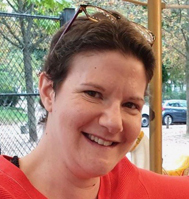
 Throughout my ELT career, I’ve developed essential skills that would contribute to being Treasurer of IATEFL. In 2005, I founded an English training company in Paris, France; this involved overseeing expenses, billing clients, and dealing with complex administration systems in a country where bureaucracy is a treasured pastime. Between 2009 and 2016, I served as President, Treasurer, and Membership Coordinator of TESOL France. In 2010, I was elected Treasurer of IATEFL BESIG and warmly welcomed into the ELT family of IATEFL. For BESIG, I carried out financial duties such as:
Throughout my ELT career, I’ve developed essential skills that would contribute to being Treasurer of IATEFL. In 2005, I founded an English training company in Paris, France; this involved overseeing expenses, billing clients, and dealing with complex administration systems in a country where bureaucracy is a treasured pastime. Between 2009 and 2016, I served as President, Treasurer, and Membership Coordinator of TESOL France. In 2010, I was elected Treasurer of IATEFL BESIG and warmly welcomed into the ELT family of IATEFL. For BESIG, I carried out financial duties such as:

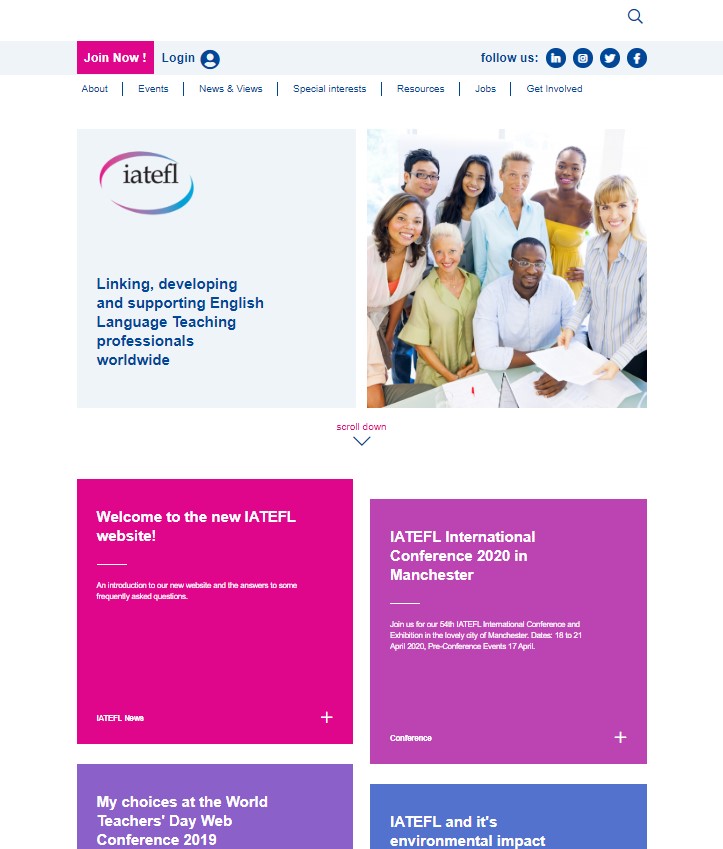

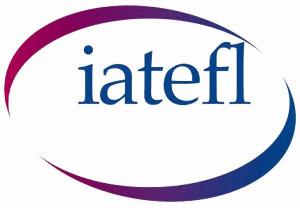

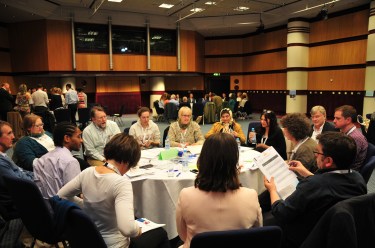

 Next year, at the IATEFL conference in Glasgow on 3 April 2017, the motto for our pre-conference event is Which skills? Which English? Helping learners to develop the language, business and intercultural skills for an ever-changing business world. We have invited six experienced business English practitioners to guide participants through various business English topics, presenting their own ideas but also encouraging discussion and self-reflection. The speakers will also suggest activities that can be used with learners to help them develop these skills.
Next year, at the IATEFL conference in Glasgow on 3 April 2017, the motto for our pre-conference event is Which skills? Which English? Helping learners to develop the language, business and intercultural skills for an ever-changing business world. We have invited six experienced business English practitioners to guide participants through various business English topics, presenting their own ideas but also encouraging discussion and self-reflection. The speakers will also suggest activities that can be used with learners to help them develop these skills.
 Members can also access the members-only resources on our website, apply for BESIG scholarships, qualify for reduced rates at our conference and benefit from a discount on a number of train-the-trainer courses in the field of business English and intercultural communication.
Members can also access the members-only resources on our website, apply for BESIG scholarships, qualify for reduced rates at our conference and benefit from a discount on a number of train-the-trainer courses in the field of business English and intercultural communication.

 Julia Waldner is an in-company business English trainer in the Rhine-Main area of Germany. She is also Coordinator of the IATEFL Business English Special Interest Group. She graduated from the University of Wales in Aberystwyth in 1988 and then spent four months fulfilling a life-long dream of travelling around the world before settling into working life.
Julia Waldner is an in-company business English trainer in the Rhine-Main area of Germany. She is also Coordinator of the IATEFL Business English Special Interest Group. She graduated from the University of Wales in Aberystwyth in 1988 and then spent four months fulfilling a life-long dream of travelling around the world before settling into working life.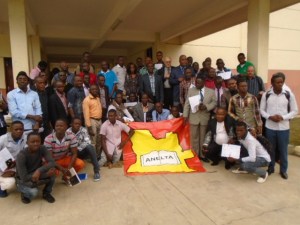
 This series of workshops had the participation of around 1000 teachers of different levels. Reading material about methodology in different topics for English language teaching was distributed.
This series of workshops had the participation of around 1000 teachers of different levels. Reading material about methodology in different topics for English language teaching was distributed.


